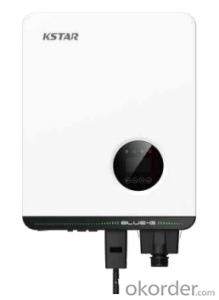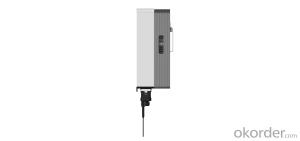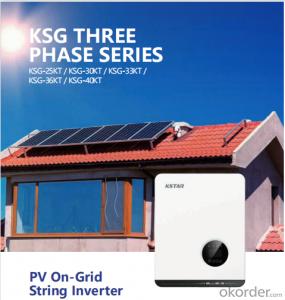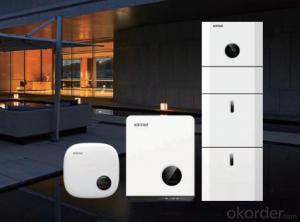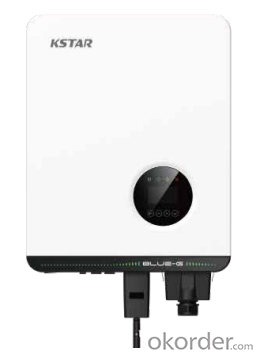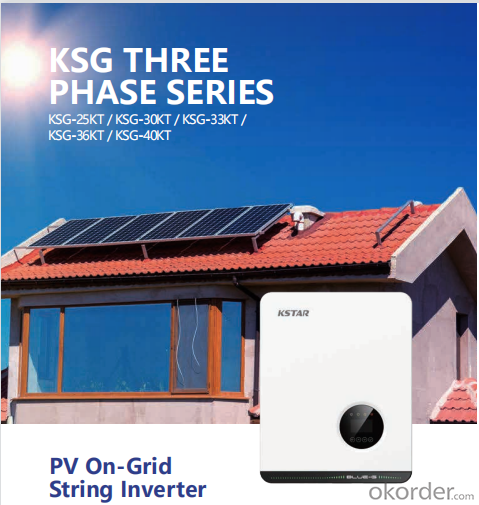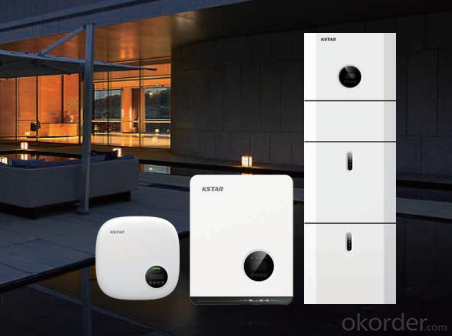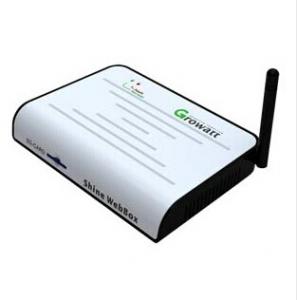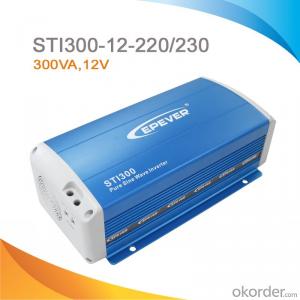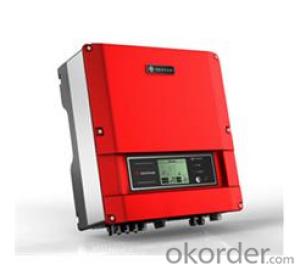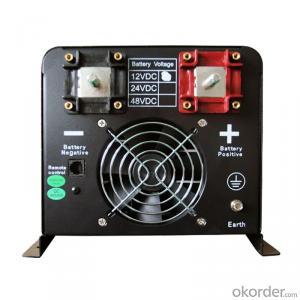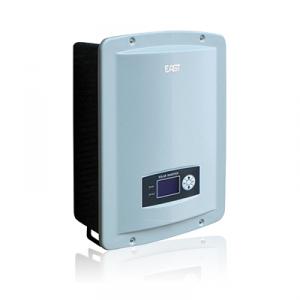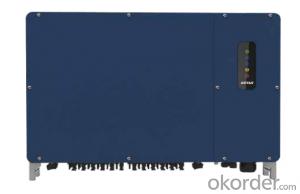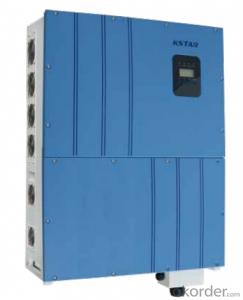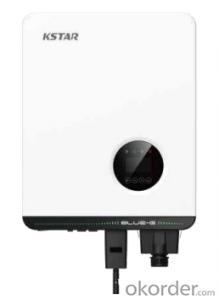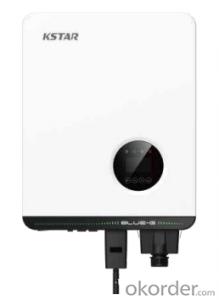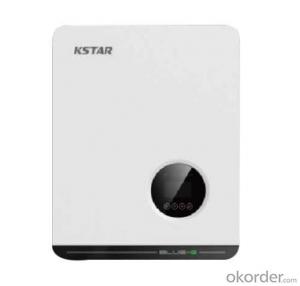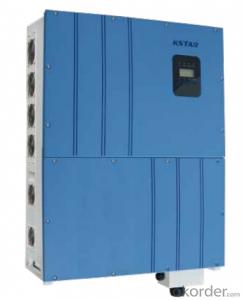Solar Inverter UK PV On-Grid String Inverter KSG-25KT / KSG-30KT / KSG-40KT
- Loading Port:
- China main port
- Payment Terms:
- TT OR LC
- Min Order Qty:
- 50 pc
- Supply Capability:
- 15000 pc/month
OKorder Service Pledge
OKorder Financial Service
You Might Also Like
Specification
Product Description:
★Max. PV voltage up to 1100V Type II DC /AC SPD
★DC/AC ratio up to 1.5 IP66 protection
★High efficiency up to 98.7% Smaller and lighter
★Compatable for big capacity PV panel WiFi / 4G Plug optional
Technical Specifications:
| MODEL | KSG-25KT | KSG-30KT | KSG-40KT |
| Input(DC) | |||
| Max. remonmmended PV power | 37500W | 45000W | 60000W |
| Max. DC Voltage | 1100V | 1100V | 1100V |
| Nominal Voltage | 600V | 370V | 370V |
| Start Voltage | 180V | 180V | 180V |
| MPPT Voltage Range | 200V-1000V | 200V-1000V | 200V-1000V |
| Number of MPP Tracker | 3 | 3 | 3 |
| Strings Per MPP Tracker | 2 | 2 | 2 |
| Max. Input Current Per MPPT | 30A | 30A | 30A |
| Max. Short-circuit current per MPPT | 50A | 50A | 50A |
| Output(AC) | |||
| Nominal AC output power | 25000W | 30000W | 40000W |
| Max. AC output power | 27500VA | 33000VA | 44000VA |
| Nominal AC Voltage | 400V 3L+N | ||
| AC Grid Frequency Range | 50Hz / 60Hz±5Hz | ||
| Max. Output Current (A) | 39.7A | 47.7A | 63.6A |
| Power Factor (cosφ ) | 0.8 leading to 0.8 lagging | ||
| THDi | 3% | ||
| Efficiency | |||
| Max. Efficiency | 98.60% | 98.70% | 98.70% |
| Euro Efficiency | 98.30% | 98.40% | 98.40% |
| Protection devices | |||
| DC Switch | Yes | ||
| Anti-islanding Protection | Yes | ||
| Output Over Current | Yes | ||
| DC Reverse Polarity Protection | Yes | ||
| String Fault Detection | Yes | ||
| AC/DC Surge Protection | Type II | ||
| Insulation Detection | Yes | ||
| AC Short Circuit Protection | Yes | ||
| General Specifications | |||
| Dimensions W x H x D (mm) | 380*483*227 | ||
| Weight(kg) | <35 | ||
| Environment | |||
| Operating Temperature range | –25℃~+60℃ | ||
| Cooling Type | Fan Cooling | ||
| Max. Operation Altitude | 4000m | ||
| Max. Operation Humidity | 0-100%(No Condensation) | ||
| AC Output Terminal Type | Connector | ||
| IP Class | IP66 | ||
| Topology | Transformer-less | ||
| Communication Interface | RS485/WIFI/4G | ||
| Display | LCD | ||
| Certification & Standard | EN/IEC62109-1/2;IEC/EN61000-6-2;IEC/EN61000-6-4; IEC61683;IEC60068;IEC60529;IEC62116;IEC61727;EN50549-1; AS 4777.2;VDE-AR-N-4105;VDE 0126-1-1;CEI0-21; G98;G99;C10/C11;NB/T32004-2018;GB/T19964-2012 | ||
FAQ:
Q:How the output voltage of the PV inverter and the grid-connected voltage are determined
Inverter is the DC power (battery, battery) into alternating current (usually 220V, 50Hz sine wave). It consists of inverter bridge, control logic and filter circuit. Widely used in air conditioning, home theater, electric wheel, power tools, sewing machines, DVD, VCD, computer, TV, washing machine, range hood, refrigerator, video recorders, massage, fan, lighting and so on. In foreign countries
Q:Installation and maintenance of photovoltaic grid - connected inverter
only when the local power sector permission by the professional and technical personnel to complete all the electrical connection before the inverter can be connected.
Q:What is the difference between a PV grid-connected inverter and an off-grid inverter?
Off-grid inverter is equivalent to their own to establish an independent small power grid, mainly to control their own voltage, is a voltage source.
Q:After the PV inverter, how to achieve the same period before the network?
Solar panel simulator: with MPPT function, simulated morning, noon, afternoon, evening, rainy weather, solar panels produced under different conditions in different voltages.
Q:Is the PV inverter a current source or a voltage source?
According to the waveform modulation method can be divided into square wave inverter, stepped wave inverter, sine wave inverter and modular three-phase inverter.
Q:Photovoltaic grid-connected inverter without DC emc how will happen
Solar photovoltaic power generation technology is the use of solar cells, the photovoltaic effect of semiconductor materials, solar radiation can be directly converted into a new type of power generation system, solar energy is a radiant energy, solar power means --- to direct conversion of sunlight Into electricity,
Q:What is the difference between low voltage grid connection and medium voltage grid connection?
For photovoltaic power plants when the power system accidents or disturbances caused by photovoltaic power plant grid voltage drop, in a certain voltage drop range and time interval, the photovoltaic power plant can ensure that non-off-line continuous operation.
Q:Is the grid side of the grid and the inverter?
The grid load side of the grid is the grid. The inverter is an important part of the PV grid-connected system and can not be regarded as an external load. Photovoltaic power generation system is included in both grid and off-grid.
Q:PV grid-connected inverter and independent inverter in the control of what is the difference
The independent inverter in the output voltage phase amplitude of the frequency control is initially set good. Independent inverter, you should refer to off-grid inverter, do not need to consider the grid situation.
Product Images:
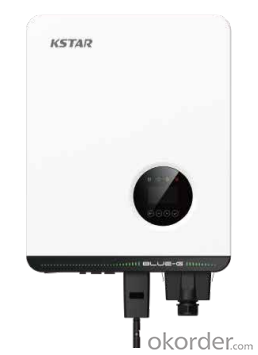
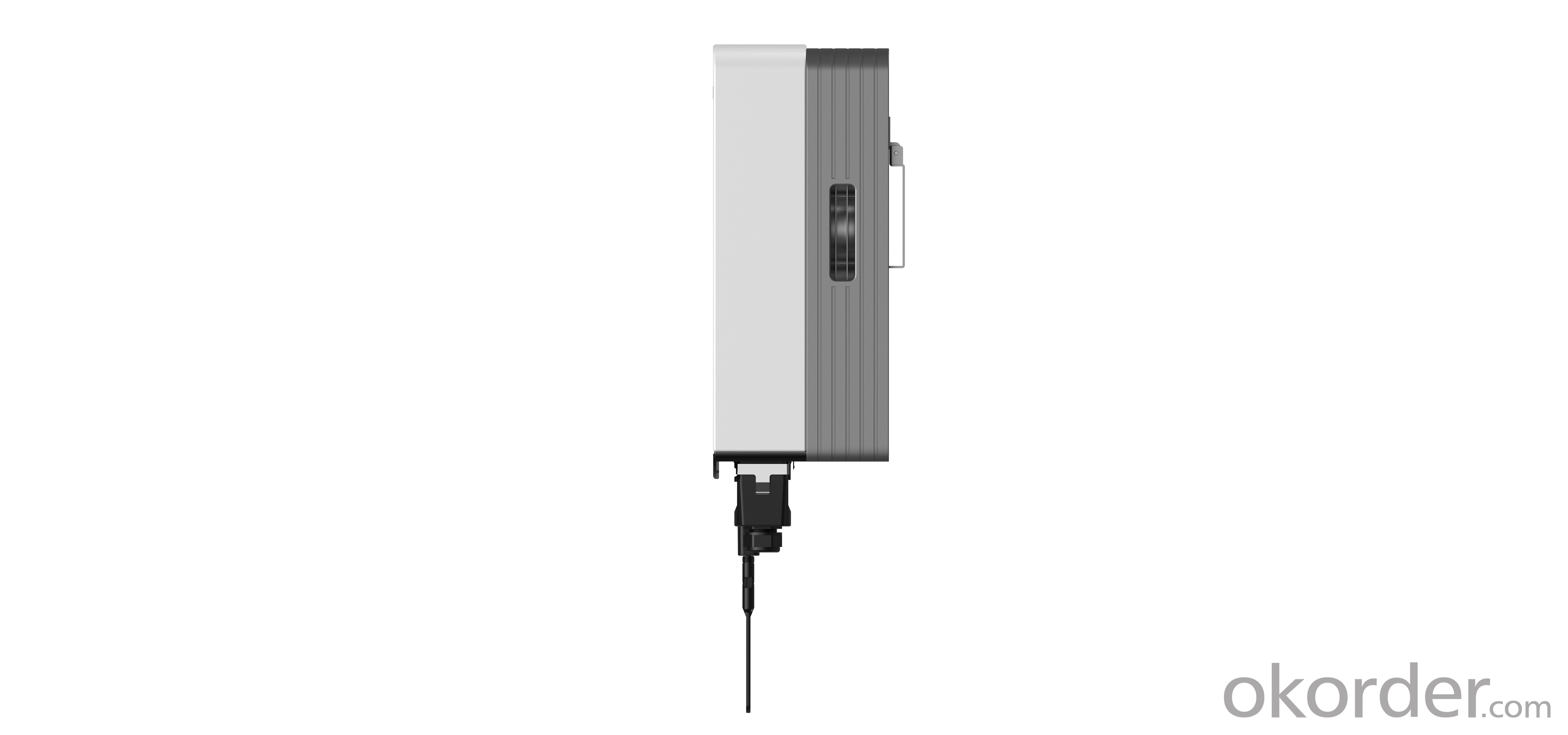
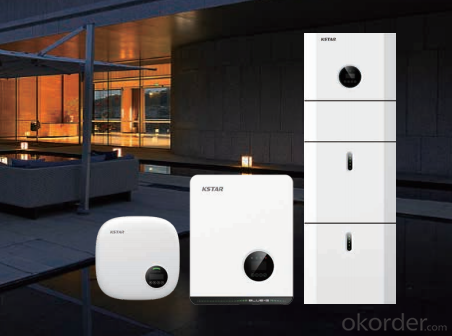
Production Process Photos:
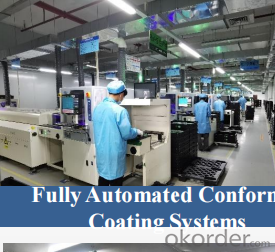
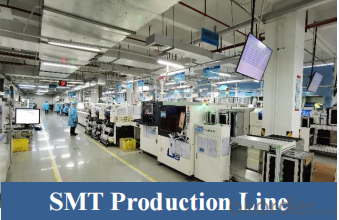
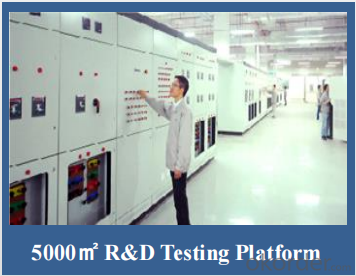
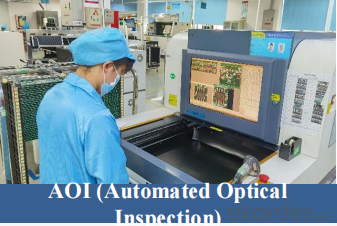
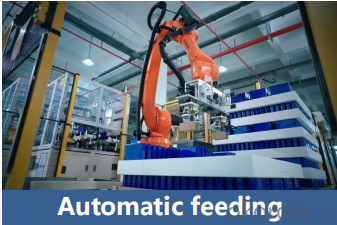
- Q: Can a solar inverter be used in systems with multiple solar arrays?
- Yes, a solar inverter can be used in systems with multiple solar arrays. The inverter has the capability to convert the DC power generated by each solar array into AC power that can be used in the electrical system. It can manage and optimize the power output from multiple arrays, ensuring efficient and reliable operation of the overall solar system.
- Q: Can a solar inverter be used with solar-powered security systems?
- Yes, a solar inverter can be used with solar-powered security systems. A solar inverter is responsible for converting the DC power generated by solar panels into AC power that can be used to power various electrical devices, including security systems. By using a solar inverter, solar-powered security systems can efficiently utilize the energy generated by solar panels to operate effectively.
- Q: How does a solar inverter handle voltage and frequency variations caused by voltage sags and swells?
- A solar inverter handles voltage and frequency variations caused by voltage sags and swells by monitoring the input voltage and frequency constantly. When it detects a variation, it employs internal control mechanisms to adjust the output voltage and frequency accordingly. This ensures that the solar inverter delivers stable and reliable power to the connected load, even during voltage fluctuations.
- Q: What is the maximum output power of a solar inverter?
- The maximum output power of a solar inverter depends on its size and specifications. Typical residential solar inverters have a maximum output power ranging from 1 kilowatt (kW) to 10 kW, while commercial and utility-scale inverters can reach several megawatts (MW) of power output.
- Q: What is the role of a solar inverter in a community solar project?
- The role of a solar inverter in a community solar project is to convert the direct current (DC) electricity generated by the solar panels into alternating current (AC) electricity that can be used to power homes and businesses. It also ensures that the electricity is synchronized with the utility grid and optimizes the efficiency of the solar power system.
- Q: Can a solar inverter be used in mobile applications?
- Yes, a solar inverter can be used in mobile applications. Mobile solar inverters are specifically designed to convert the direct current (DC) power generated by solar panels into alternating current (AC) power that can be used to charge mobile devices or power small appliances while on the go. These inverters are typically compact, lightweight, and have features like USB ports or built-in batteries to provide convenient and portable power solutions.
- Q: Can a solar inverter be used with solar concentrators?
- Yes, a solar inverter can be used with solar concentrators. Solar concentrators focus sunlight onto a smaller area, increasing its intensity. The concentrated solar energy can then be converted into electricity by a solar inverter, just like with traditional solar panels.
- Q: Are all solar inverters compatible with all solar panels?
- No, not all solar inverters are compatible with all solar panels. The compatibility between solar inverters and panels depends on various factors such as the voltage, current, and type of panels being used, as well as the specifications and requirements of the specific inverter model. It is important to ensure that the inverter is compatible with the specific type and configuration of solar panels being installed to ensure optimal performance and efficiency.
- Q: What is the difference between a PV inverter and a solar inverter?
- Instability, the wind speed and the equipment itself will directly affect the generator rotation, so the voltage and current fluctuations, frequency instability, in short, is the power quality is poor) Therefore, through the inverter after the first rectification inverter to improve the quality of power
- Q: Can a solar inverter be used with different types of solar PV systems (roof-mounted, ground-mounted, etc.)?
- Yes, a solar inverter can be used with different types of solar PV systems, including roof-mounted, ground-mounted, and other variations. The primary function of a solar inverter is to convert the direct current (DC) electricity generated by solar panels into alternating current (AC) electricity that can be used to power appliances and feed into the electrical grid. This conversion process remains consistent regardless of the type of PV system being used. However, it's important to note that the specific requirements and specifications of the solar inverter may vary depending on the type of PV system. Different PV systems may have varying voltage and power outputs, which may require specific inverter models capable of handling those specific requirements. For example, ground-mounted solar systems may have larger arrays and higher power outputs compared to roof-mounted systems, necessitating a different inverter. Therefore, while a solar inverter can generally be used with different types of solar PV systems, it is crucial to choose an inverter that is compatible with the specific system's voltage, power output, and other technical specifications. It is always recommended to consult with a professional solar installer or technician to ensure the proper selection and installation of the solar inverter for your specific PV system.
Send your message to us
Solar Inverter UK PV On-Grid String Inverter KSG-25KT / KSG-30KT / KSG-40KT
- Loading Port:
- China main port
- Payment Terms:
- TT OR LC
- Min Order Qty:
- 50 pc
- Supply Capability:
- 15000 pc/month
OKorder Service Pledge
OKorder Financial Service
Similar products
Hot products
Hot Searches
Related keywords
